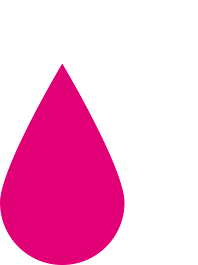Just
...a few more days of water
Cape Town is running out of water. How a city is now fighting to protect every last drop of its water. And how a project by T-Systems South Africa has brought some hidden, unexpected water consumption to light.
D id you get a call from the mayor in the past few days asking you to conserve water because you've been using too much water lately? Patricia de Lille, the mayor of Cape Town, has been resorting to this unusual step. This is because her city is in a dire situation – Cape Town is running out of drinking water, and it's fighting to protect its last water reserves. A catastrophe is knocking on the door of the Cape of Good Hope.
Each citizen is allowed a maximum of 100 liters of water per day. A five-minute shower uses about 85 liters.
No washing cars, no watering yards, no filling swimming pools – all are prohibited. These measures are part of a plan designed to help citizens save water. A water police force organized especially for the purpose monitors compliance with the strict rules. When it spots a yard that looks suspiciously – and illegally – unwithered, it knocks on the resident's door. Each citizen is allowed a maximum of 100 liters of water per day. To put this in perspective: A five-minute shower uses about 85 liters.
Current experts' estimation
Only ...a few more days
of water in Cape Town
The threatening collapse of the city's water supply is the result of a persistent drought that has dried up Cape Town's nearby water reservoirs. According to Cape Town Magazine, in February 2017 experts were already warning that water reserves had fallen to the 100-day mark. And the situation for the people of Cape Town is worsening dramatically. Everyone is hoping for a rain miracle. If it fails to materialize, taps will soon run dry. In South Africa, climate change is no longer a far-off horror scenario – it is a bitter reality, here and now.
A Deutsche Telekom pilot project in the town of George, located about 430 km east of Cape Town, has now unearthed a hidden, unexpected source of water consumption. The aim of the project was to shed light on inhabitants' personal water consumption, in keeping with the insight that people are much more motivated to save water when they can accurately monitor their consumption. To this end, T-Systems developed a smart "little helper" that converts existing water meters into smart meters. The retrofits are fast and easy to carry out, and they are very cheap in comparison to costly complete meter replacements. When fitted to a water user's existing meter, the new device transmits consumption data every hour, both to the user and to the city.
Everyone is hoping for a rain miracle. If it fails to materialize, taps will soon run dry.
Evaluations of the data have fast yielded a surprising finding – a major category of water consumption that had gone completely unnoticed. The daily overview also showed strange constant water consumption at night as well. The conclusion: water leakages of enormous proportions. Up to 6 percent of all households lose an entire liter of water every hour through leakage. When that figure is extrapolated to the relevant area, it means that more than 1.7 million liters of water per month are being lost solely in George, home to about 157,000 people. If that water could be collected, it would amount to enough daily drinking water for almost half of Cape Town's 4.7 million people. The potential savings are thus enormous. Thanks to the smart meters, the city is now able to inform households about leaks and reduce water pressure immediately in order to minimize water losses. And there are more ideas. For example, communities could use the technology to provide targeted incentives to save water: "If you use 10 percent less than an average household of your size, you will receive a better price per liter."
1.7mio
liters of water are lost because
of leaks every month in the city of
George alone. That's enough to
provide 2.5 mio people with
clean potable water.

1. million liters
That's the volume
of a swimming pool
of 30x20 meters and
a depth of 2 meters
Keeping tabs on your personal water consumption – Smart water meters can help with a more conscious and frugal water consumption and thereby making an important contribution to environmental protection.
The example of South Africa is only the vanguard. Climate change and its impacts will soon affect us all. Ban Ki-moon, the former Secretary-General of the United Nations, has warned that by 2030 one out of every two people may lack adequate access to water. Water demand could then exceed the available water reserves by 40 percent, explained Ban Ki-moon.
Smart water meters can help bring about more conscientious and efficient approaches to our water consumption, thereby contributing to environmental protection, be it on the Cape of Good Hope, on the North Shore or in New York City. Have you been wondering when you should start saving water? - Well, now's a good time! The more people who get involved, the better. Therefore, we urge you to share this article with your friends on Facebook!
What's more, Deutsche Telekom also supports thrifty water consumption by connecting the agricultural sector and by offering Smart Home solutions for your own four walls.